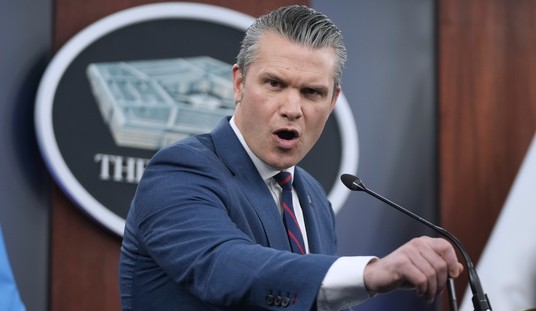Which Conway? Come on, man. The Kellyanne-George public war over Donald Trump reached its zenith — so far, anyway — with the latter’s call to remove his wife’s boss from office. Writing in the Washington Post today, George Conway urges Congress to impeach Trump even though Robert Mueller found no collusion with Russia and declined to reach a conclusion on obstruction:
Still, the special counsel’s report is damning. Mueller couldn’t say, with any “confidence,” that the president of the United States is not a criminal. He said, stunningly, that “if we had confidence after a thorough investigation of the facts that the President clearly did not commit obstruction of justice, we would so state.” Mueller did not so state.
That’s especially damning because the ultimate issue shouldn’t be — and isn’t — whether the president committed a criminal act. As I wrote not long ago, Americans should expect far more than merely that their president not be provably a criminal. In fact, the Constitution demands it. …
The Constitution provides for impeachment and removal from office for “Treason, Bribery, or other high Crimes and Misdemeanors.” But the history and context of the phrase “high Crimes and Misdemeanors” makes clear that not every statutory crime is impeachable, and not every impeachable offense need be criminal. As Charles L. Black Jr. put it in a seminal pamphlet on impeachment in 1974, “assaults on the integrity of the processes of government” count as impeachable, even if they are not criminal.
And presidential attempts to abuse power by putting personal interests above the nation’s can surely be impeachable. The president may have the raw constitutional power to, say, squelch an investigation or to pardon a close associate. But if he does so not to serve the public interest, but to serve his own, he surely could be removed from office, even if he has not committed a criminal act.
Conway goes on to compare Trump to Nixon unfavorably, but stumbles over the comparison by leaving out significant information. Nixon’s “aides were the driving force behind the obstruction,” Conway asserts, leaving Nixon to be “mostly passive.” Conway acknowledges that Mueller found no underlying crime for obstruction — which isn’t necessarily a defense — but for some reason disparages the fact that Nixon’s case did have an underlying crime.
The underlying crime in Watergate was a clumsy, third-rate burglary in an election campaign that turned out to be a landslide.
Yes, but it wasn’t just any clumsy third-rate burglary — they were burglarizing the offices of the opposition party as part of their re-election effort. Nixon and/or his aides then used the power of the federal government to cover up that crime, which Nixon knew about and at the least did nothing to stop. In that case we have an actual crime that went to the heart of an election and an official conspiracy to keep it from getting tied back to Nixon and his campaign. There were more serious allegations than Conway credits in the Articles of Impeachment against Nixon, including attempts to use the IRS against his political enemies, misuse of the FBI and Secret Service for political surveillance, and his Saturday Night Massacre in firing multiple officials, including independent prosecutor Archibald Cox, to derail the Watergate investigation.
And if no underlying crime isn’t a defense against obstruction, I’m pretty confident that “a landslide” isn’t a defense against burglary, either.
Why underreport Nixon’s crimes? Conway wants to draw a tilted comparison to Trump to bolster his argument. Ignoring and downplaying the corruption of Watergate only makes Conway’s argument look more threadbare, however. Since he’s the one using Watergate as a measuring stick, the actual Articles of Impeachment — and their bipartisan support — shows how far short a Trump impeachment effort falls of that metric.
At the moment, this still looks like no sale with Democrats, as Politico notes:
But while Conway was clear in his call for Congress to impeach Trump, Democrats have continued to tread lightly on the issue. Democrats in the House have pledged to continue their bevy of investigations into Trump, with some arguing that Mueller’s findings on obstruction serve as a road map of sorts for them. Others have concluded Mueller intended to leave the question of obstruction up to Congress, but party leaders have notably stopped short of saying they’ll pursue impeachment.
Without a smoking gun in Mueller’s 448-page report, it will be nearly impossible to reach a widespread bipartisan consensus on the issue, a prerequisite that top Democrats have laid out multiple times. Still, House Speaker Nancy Pelosi on Thursday signaled some sort of action, writing to her caucus that “Congress will not be silent.”
Impeachment is going nowhere, now that it’s clear that the Trump campaign didn’t collude with Russia and the 2016 election was on the level. They’ll continue to harass him with investigations, but most of that effort will be aimed at helping out their 2020 nominee with some oppo research. (The rest of that effort will be aimed at self-promotion by the committee chairs.)
The big question is no longer whether Congress will impeach Trump. It’s which Conway plans to impeach the other.







Join the conversation as a VIP Member